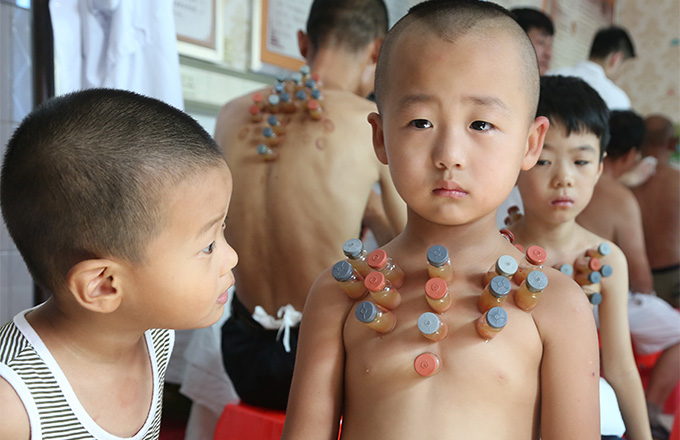Hospitals told to beef up security
Government wants doctors and medical workers to be protected
Security guards at large Chinese hospitals are now required to escort potentially dangerous patients during medical consultations, according to new measures aimed at preventing attacks on health professionals.
Patients who are intoxicated, have a mental illness or "act abnormally" should be accompanied when with doctors and nurses, according to a notice issued by the central government on Tuesday.
The new rules, drawn up by the National Health and Family Planning Commission and the Ministry of Public Security, also state that hospitals should have emergency response teams and be equipped with an adequate surveillance network.
"Strong and timely control measures should be taken in response to security incidents to ensure safety," the document said.
China ranks hospitals in three categories, with small or grassroots clinics at Grade I. The new rules are aimed only at Grade II and Grade III facilities, which are mostly in cities, to raise awareness for staff safety.
Violence against medical professionals regularly makes headlines in China, including a case in February in which a top liver transplant surgeon in Jiangsu province was stabbed in the leg.
Deng Liqiang, director of legal affairs for the Chinese Medical Doctor Association, said attackers range from disgruntled patients and relatives to scalpers who sell hospital appointments.
"The document provides targeted intervention, like dealing with drunk patients, as violent cases involving drunk attackers against healthcare workers are not rare," he said, adding that the new measures highlight prevention, not just response.
One such example is the requirement that visitors to hospitalized patients must now show a valid ID to enter.
Senior security officials at two major Beijing hospitals declined to comment on the document or how the new rules will affect their facilities when contacted by China Daily on Wednesday.
However, Yu Zhenqiu, director of the hypertension department at Anzhen Hospital in Beijing, welcomed the new initiative and said he looked forward to more policies to improve strained doctor-patient relationships.
"That helps avert and substantially decrease violence against healthcare workers, which in the end hurts patients as well," he said.
Yu said current measures, like a tiered medical delivery system and a blanket halt to drug price markup, would help optimize medical resources, improve patients' access to proper care and improve their satisfaction.
A 2015 survey by the doctor association found 70 percent of doctors in China have suffered verbal abuse or physical violence at hospitals.
The document also instructs public security departments, if possible, to closely work with particularly large hospitals and send police staff patrolling or being stationed at hospitals.
In addition, hospitals were told to set up channels for patients to file complaints and vent their anger against some doctors or medical procedures that were not satisfactory.




























